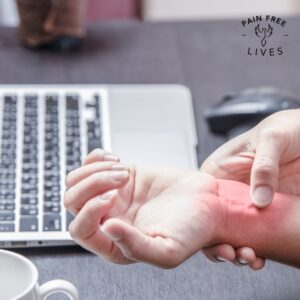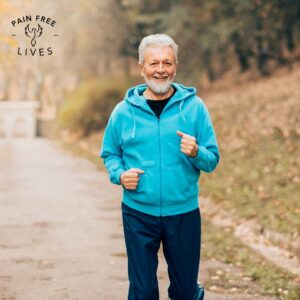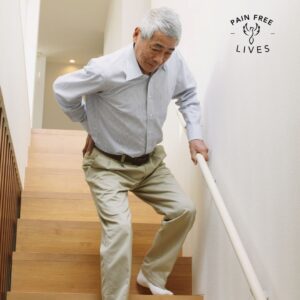
When we think about joint health, most people focus on obvious culprits—injuries, arthritis, wear and tear. But beneath the surface of every aching joint lies a powerful, often overlooked triangle that silently shapes our body’s ability to move, heal, and recover: hydration, sleep, and inflammation.
At Pain Free Lives, we’ve seen firsthand how patients chasing procedures and medications sometimes miss the foundational elements that drive true recovery. Before the first injection or intervention, these three physiological forces are already at work. If even one is out of sync, the entire system suffers—and your joints feel it.
Let’s explore why this triangle matters more than most people realize, and what you can do to strengthen it starting today.
Hydration: More Than Just Water Intake
Your joints are surrounded by synovial fluid, a thick, gel-like substance that reduces friction between cartilage surfaces. That fluid is largely composed of water. When your body is dehydrated—even mildly—synovial fluid production declines. The result? Less cushioning, more grinding, and faster degeneration of the joint surfaces.
But hydration isn’t just about keeping joints lubricated. Water also supports cellular repair, circulatory function, and waste removal—all critical components of inflammation management. Without adequate hydration, toxins linger in joint tissues longer, contributing to stiffness and soreness.
Many patients assume they’re well-hydrated simply because they drink coffee or soda during the day. But caffeine and sugary beverages are diuretics—they increase fluid loss. The kind of hydration your joints need comes from clean water, electrolyte-balanced fluids, and hydrating foods like fruits and vegetables.
The truth is, your cartilage is only as healthy as the environment it lives in. A dehydrated joint is a vulnerable joint. For patients undergoing regenerative treatments like PRP or BMAC, hydration plays a direct role in the effectiveness of those procedures.
Sleep: The Recovery System You Can’t Cheat
If hydration is the oil in your engine, sleep is the repair shop. During deep, uninterrupted sleep, your body releases growth hormones, regulates cortisol (your stress hormone), and activates its most powerful internal healing systems. This is when inflammation quiets, muscles recover, and tissue regeneration accelerates.
But poor sleep—whether due to insomnia, sleep apnea, or just lifestyle neglect—disrupts this process. Studies have shown that even short-term sleep deprivation can increase systemic inflammation, reduce pain tolerance, and trigger musculoskeletal tension. Over time, it creates a cycle that’s hard to break: pain interferes with sleep, poor sleep increases inflammation, and inflammation worsens pain.
It’s a quiet loop that often flies under the radar in traditional medical settings. But at Pain Free Lives, we ask every patient about their sleep, because it’s a non-negotiable part of healing. You can have perfect form in your workouts, the best supplements, and a top-tier treatment plan—but if you’re sleeping four hours a night, your recovery will hit a wall.
Addressing sleep doesn’t always mean turning to medication. Sometimes it’s about improving nighttime routines, evaluating your mattress and sleep posture (especially with neck or lower back pain), or exploring breathing assessments to rule out sleep apnea. When we help patients optimize their rest, their treatment outcomes improve across the board.
Inflammation: The Bridge Between Symptoms and Root Cause
Of the three points in this triangle, inflammation is the most misunderstood. It’s not always a bad thing—in fact, it’s a critical part of healing. Acute inflammation after an injury is your body’s way of protecting the area and beginning repair. But when inflammation becomes chronic, it turns destructive.
Chronic inflammation erodes cartilage, stiffens connective tissue, and sensitizes nerves—making the same level of stimulus feel more painful. It’s also linked to systemic diseases like rheumatoid arthritis, metabolic syndrome, and even neurodegenerative conditions. In joint health, it’s the silent force that worsens degeneration while masking the early signs.
Hydration and sleep directly influence inflammatory activity. Dehydration triggers stress responses in the body, while poor sleep impairs your immune regulation. Together, these imbalances drive low-grade inflammation that simmers for months or even years before being detected.
This is why we treat inflammation as more than just swelling or redness. It’s a system-wide imbalance that we work to calm through targeted interventions—whether it’s nutritional support, regenerative injections, or simply helping patients identify lifestyle contributors like stress, food sensitivities, or overtraining.
The Triangle in Practice: A Patient-Centered View
When we meet patients at Pain Free Lives—especially those who have “tried everything”—we often find that this triangle has been overlooked. They’ve focused on treating symptoms, but not on supporting the body’s internal recovery systems.
Take a patient who’s receiving PRP therapy for chronic knee pain. If they’re underhydrated, sleeping poorly, and experiencing systemic inflammation, their platelet response will be compromised. Their tissue won’t regenerate efficiently. Their outcomes will plateau. But if we address hydration and sleep proactively while targeting inflammation, they often recover faster, more completely, and with fewer setbacks.
We’ve seen this across our patient base: small adjustments to hydration and sleep, supported by our clinical care, produce exponential improvements in pain, mobility, and energy. These aren’t miracle cures. They’re the basics done right.
Final Thoughts: You Can’t Outsource the Fundamentals
Joint health isn’t just about what happens in a treatment room—it’s about what your body is doing every hour of every day. Hydration, sleep, and inflammation form a triangle that supports every other system you rely on for movement, recovery, and resilience.
At Pain Free Lives, we integrate these elements into every care plan, because we know that lasting relief comes from treating the whole person—not just the joint.
So if you’ve been chasing new treatments but skipping water, ignoring sleep, or brushing off fatigue as “just getting older,” it might be time to reconnect with the basics. Your joints are listening—even when you’re not.







